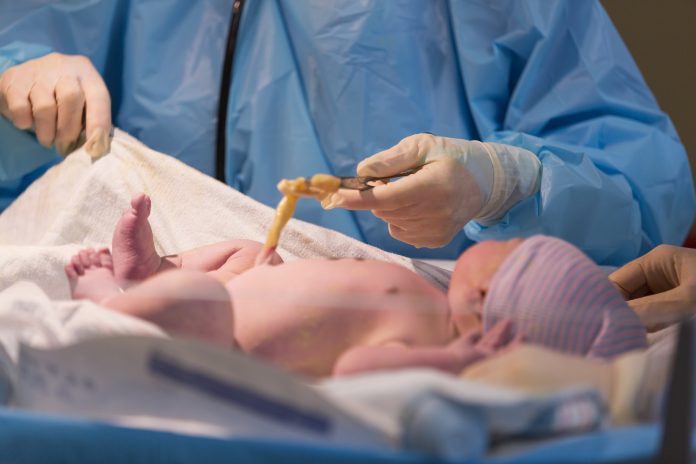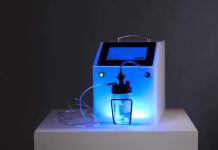Studies suggest that the use of mesenchymal stem cells collected from umbilical cord blood and tissue are a safe and effective way to alleviate symptoms of coronavirus and promote fast recovery
But could stem cells be the answer?
Scientists and researchers are uniting in a global effort to develop cutting edge technologies and novel treatments for the virus. As a result, numerous early studies have emerged, proposing stem cells as an effective method in treating the disease, with several clinical trials now underway. In particular, these studies have focused on the therapeutic potential of stem cells from the umbilical cord in the treatment of COVID-19 patients.
Using stem cells to treat COVID-19
Recently, mesenchymal stem cells (MSCs) harvested from umbilical cord blood have attracted significant attention in clinical trials for COVID-19 due to their immunomodulatory and regenerative properties.
When an individual contracts COVID-19, an immune overreaction is triggered in the body, producing large amounts of inflammatory factors whilst simultaneously destroying numerous essential cells. This results in in an overproduction of immune cells and cytokines, which researchers refer to as an “inflammatory storm”.
Here, the idea to use MSCs in the treatment of COVID-19 patients was coined, to prevent the storm release of cytokines by the immune system and promote repair by reparative properties of the stem cells.
These MSCs oppose viral infections due to the presence of specific cytokines improved qualities. Subsequently, they can prevent lung tissue damage by counteracting the cytokine storm through their immunomodulatory function and differentiation ability to regenerate and reconstruct damaged tissue. As a result, it has been demonstrated that MSCs significantly reduce the risk of COVID-19 pneumonia and respiratory failure.
The application of these stem cells seems to be particularly effective in cases of critically ill patients, as reported in the Aging and Disease journal. In this study, seven COVID-19 patients were administered with MSCs from the umbilical cord. After two days of receiving the MSC treatment, the pulmonary function and symptoms of the seven patients were significantly improved without any adverse effects.
Another study of a critically ill COVID-19 patient has shown remarkable reversal of symptoms using MSCs. The 65-year-old woman, whose condition had progressed despite intensive therapy, was on a ventilator and was showing evidence of liver damage. The patient was treated with three intravenous infusions of MSCs, three days apart. Within four days of the first dose of the MSC treatment, she was able to come off the ventilator and walk again.
The FDA have also recently authorised compassionate use of stem cells, including MSCs and cells taken from the placenta, for intravenous infusions in patients with a severe prognosis. This has come following the success of a placenta-based cell-therapy to treat COVID-19 patients, which has resulted in the coronavirus-recovered patients being discharged from hospital.
To date, there are 17 completed clinical trials which have investigated the application of MSCs in treating COVID-19 as well as more than 70 other trials in this regard currently ongoing. Whilst the clinical use of MSCs in treating COVID-19 is still in its early phases, the initial results are certainly promising.
Umbilical cord stem cells: The future of regenerative medicine
The use of mesenchymal stem cells (MSCs) has gained global traction in recent years due to their vast regenerative potential and their role in immune disorders. In particular, the umbilical cord has been identified as the richest and purest source of these stem cells. These cells can be easily harvested, isolated, cultured and used in cell-based therapy, from basic research to clinical trials.
Stem cells from the umbilical cord are widely recognised by doctors as an invaluable resource for regenerative therapies as they can transform into a wide array of tissue types. They play a significant role in repair and renewal of damaged tissue, and clinical studies have even demonstrated its ability to regenerate entire organs
Umbilical cord blood stem cells were first introduced in the 1980s, when it was used to successfully treat a young boy with Fanconi anaemia. Today, cord blood stem cells can treat more than 80 conditions, including many blood cancers and immune disorders such as leukaemia, lymphoma and severe combined immunodeficiency (SCID).
These stem cells are also now central to hundreds of promising clinical trials for common and often life-threatening conditions such as arthritis, heart disease and multiple sclerosis.
To find out more about umbilical cord stem cells and their role in regenerative medicine, visit cells4life.com
References
Campbell & MacDonald, (2020) “Exploring the Utility of Stem Cell Therapy for COVID-19”, BioPharma, available at:
Bing Liang et al., (2020) “Clinical remission of a critically ill COVID-19 patient treated by human umbilical cord mesenchymal stem cells”, ChinaXiv, available at:
http://chinaxiv.org/abs/202002.00084
Golchin et al., (2020) “Mesenchymal Stem Cell Therapy for COVID-19: Present or Future”, Stem Cell Reviews and Reports, available at:
https://www.ncbi.nlm.nih.gov/pmc/articles/PMC7152513/
Zikuan Leng et al., (2020) “Transplantation of ACE2- Mesenchymal Stem Cells Improves the Outcome of Patients with COVID-19 Pneumonia”, Aging and Disease, available at:
http://www.aginganddisease.org/EN/10.14336/AD.2020.0228
Michael Hill (2020) “Hospital uses placenta cells to try to improve two COVID-19 patients” NJTV News, available at:
Pluristem (2020) “Pluristem Reports Preliminary Data from its COVID-19 Compassionate Use Program, Treating Seven Patients with Acute Respiratory Failure”, Pluristem, available at:
Ballen et al., (2013) “Umbilical cord blood transplantation: the first 25 years and beyond”, Blood, available at:
https://www.ncbi.nlm.nih.gov/pmc/articles/PMC3952633/
Parent’s Guide to Cord Blood Foundation, (2020) “Diseases Treated”, available at: https://parentsguidecordblood.org/en/diseases











